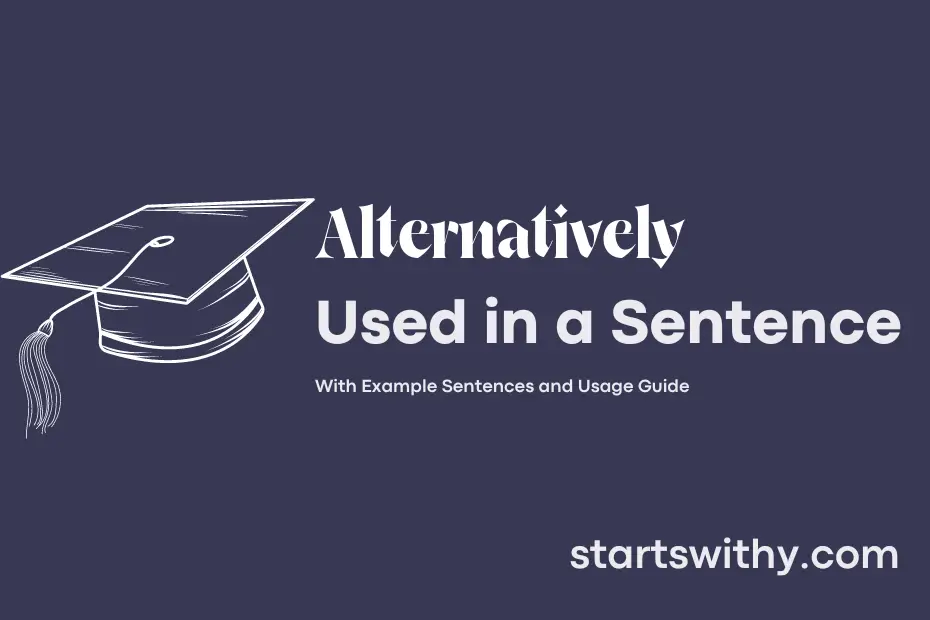Looking for a way to express choices or present alternatives in your writing? The word “alternatively” might be just what you need.
This transitional adverb is used to introduce another possibility or option, serving as a helpful tool to offer an alternative perspective or course of action in your sentences.
7 Examples Of Alternatively Used In a Sentence For Kids
- We can play with the ball outside alternatively we can read a book indoors.
- We can color with crayons alternatively we can play with clay.
- We can sing a song alternatively we can dance to music.
- We can have fruits for snack alternatively we can have biscuits.
- We can build a castle with blocks alternatively we can play with toy cars.
- We can water the plants alternatively we can feed the birds.
- We can hop like bunnies alternatively we can stretch like cats.
14 Sentences with Alternatively Examples
- Alternatively, you can join a study group to better understand the challenging concepts in the course.
- You can borrow textbooks from the library or alternatively download e-books from online resources.
- Alternatively, you can attend workshops and seminars to enhance your knowledge and skills.
- Instead of studying alone, alternatively you can form a study group with your classmates.
- Alternatively, you can seek help from your professors during their office hours.
- You can choose to take part in extracurricular activities or alternatively join clubs related to your interests.
- Alternatively, you can use flashcards to help you memorize important information for exams.
- Instead of procrastinating, alternatively you can create a study schedule to stay organized and manage your time effectively.
- Alternatively, you can explore online courses to supplement your learning and gain additional knowledge.
- You can practice past exam papers or alternatively quiz yourself regularly to test your understanding of the subject.
- Alternatively, you can volunteer for internships to gain practical experience in your field of study.
- Instead of staying up late, alternatively you can prioritize your sleep to improve your focus and concentration.
- Alternatively, you can create study playlists with background music to help you stay motivated while studying.
- You can choose to attend career fairs or alternatively network with professionals in your desired industry.
How To Use Alternatively in Sentences?
Alternatively can be used in a sentence as an adverb to introduce another option or choice. It is often used to suggest an alternative to a previous idea or course of action.
For example, you can say, “I can take the bus to work, alternatively I can carpool with my colleague.” In this sentence, the word alternatively is used to present another choice besides taking the bus.
When using alternatively in a sentence, make sure to place it at the beginning of the clause that presents the alternative option. This helps to clearly indicate the different choices available.
Here is another example: “You can choose to study at home for the exam, alternatively you can go to the library for a change of environment.” In this sentence, alternatively is used to offer a different option for studying.
In summary, alternatively is a useful word to introduce alternative choices or options in a sentence. By using it correctly, you can effectively present different possibilities and help clarify the different options available.
Conclusion
In conclusion, the use of “alternatively” in sentences offers a quick and effective way to present options or present contrasting ideas. By using this word, writers and speakers can suggest an alternative choice or provide another perspective without being repetitive. For example, “You can either study for the test or alternatively, seek help from a tutor” clearly provides two options for the individual.
Overall, incorporating “alternatively” in sentences helps to improve clarity and enhance communication by offering flexibility in presenting ideas. Whether in academic writing, professional documents, or everyday conversations, the use of this word can add depth and nuance to one’s discourse, making it a valuable tool for effective communication.



